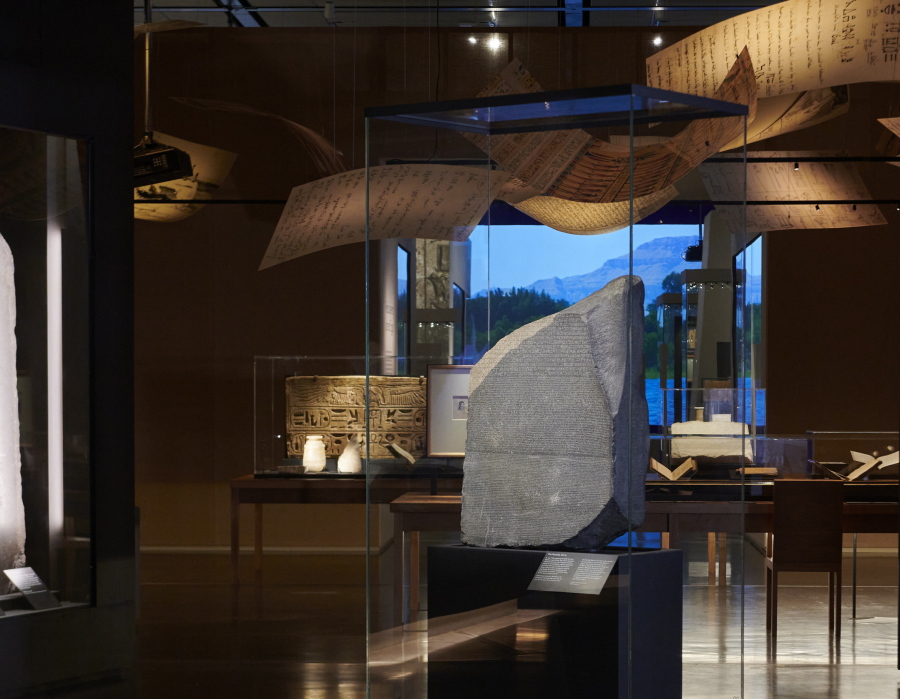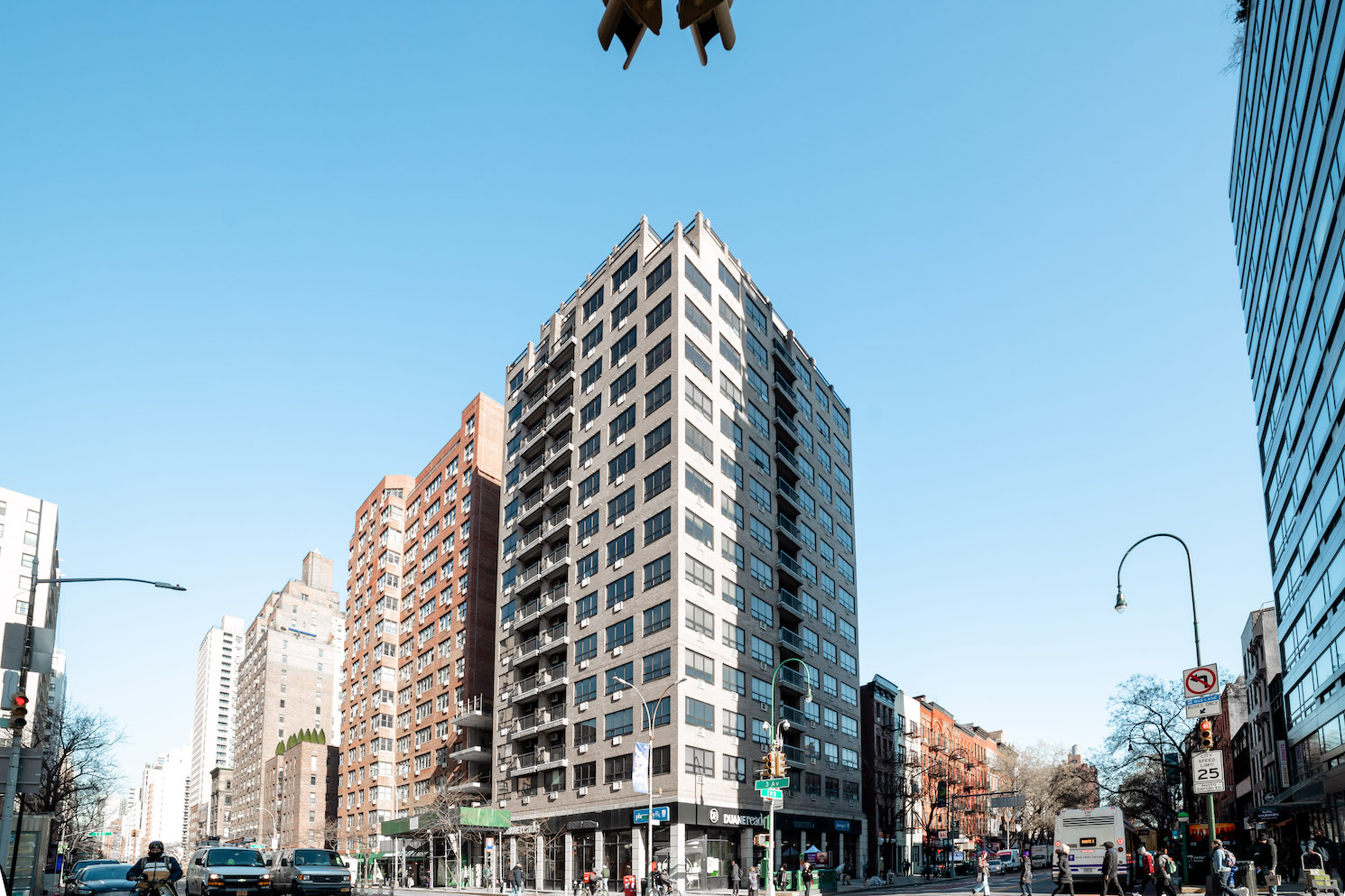CAIRO (AP) — The debate over who owns ancient artifacts has become a growing issue for museums across Europe and the Americas, with the British Museum’s most visited exhibit in the spotlight: the Rosetta Stone.
The inscriptions on the dark gray granite slab became a major breakthrough in the decipherment of ancient Egyptian hieroglyphs after it was removed from Egypt by the forces of the British Empire in 1801.
Now, as Britain’s biggest museum celebrates the 200th anniversary of deciphering the hieroglyphs, thousands of Egyptians are demanding the return of the stone.
“The stone in the British Museum is a symbol of Western cultural violence against Egypt,” said Monica Hanna, dean of the Arab Academy of Science, Technology and Maritime Transport and organizer of one of two petitions calling for the return of the stone.
The acquisition of the Rosetta Stone was linked to the imperial battles between Great Britain and France. After Napoleon Bonaparte’s military occupation of Egypt, French scientists discovered the stone in 1799 in the northern city of Rashid, known to the French as Rosetta. When British forces defeated the French in Egypt, the stone and more than a dozen other antiquities were handed over to the British under the terms of an 1801 surrender agreement between generals on both sides.
Since then it has been kept in the British Museum.
Hanna’s petition, which has 4,200 signatures, says the stone was illegally seized and is “spoils of war”. The claim is echoed in an almost identical petition by Zaha Hawass, Egypt’s former antiquities minister, which has more than 100,000 signatures. Hawass argues that Egypt had no say in the 1801 agreement.
The British Museum denies this. The museum said in a statement that the 1801 treaty included the signature of a representative of Egypt. It refers to an Ottoman admiral who fought alongside the British against the French. The Ottoman Sultan in Istanbul was nominally the ruler of Egypt at the time of Napoleon’s invasion.
The museum also said that the Egyptian government has not submitted a request for its return. He added that 28 copies of the same engraved decree are known, and 21 of them remain in Egypt.
The controversy surrounding the original stone copy stems from its unparalleled importance to Egyptology. The slab, carved in the 2nd century BC. e., contains three translations of the decree on the agreement between the ruling Ptolemies at that time and the sect of Egyptian priests. The first inscription is in classical hieroglyphs, the next in a simplified hieroglyphic script known as demotic, and the third in ancient Greek.
Thanks to the knowledge of the latter, scientists were able to decipher the hieroglyphic symbols, and the French Egyptologist Jean-Francois Champallion finally cracked the language in 1822.
“Scholars from before the 18th century were very keen to find a bilingual text written in a known language,” said Ilona Regulski, head of the British Museum’s Department of Egyptian Written Culture. Regulsky is the leading curator of the museum’s winter exhibition “Hieroglyphs that reveal ancient Egypt”, timed to the 200th anniversary of Champallion’s breakthrough.
The stone is one of more than 100,000 Egyptian and Sudanese relics held by the British Museum. A large percentage was obtained during Britain’s colonial rule over the region from 1883 to 1953.
Museums and collectors are increasingly returning artifacts to their countries of origin, with new cases being reported almost monthly. It is often the result of a court order, while some cases are voluntary, symbolizing an act of atonement for historical wrongs.
New York’s Metropolitan Museum of Art returned 16 antiquities to Egypt in September after a US investigation concluded they had been smuggled. London’s Horniman Museum on Monday signed over 72 items, including 12 Benin bronze medals, to Nigeria at the request of the country’s government.
Nicholas Donnell, a Boston-based attorney who specializes in cases involving art and artifacts, said there is no common international legal framework for such disputes. Unless there is clear evidence that the artifact was acquired illegally, repatriation is largely at the museum’s discretion.
“Given the treaty and the timing, the Rosetta Stone is an uphill legal battle to win,” Donnell said.
The British Museum acknowledged that it had received several requests to repatriate artifacts from various countries, but did not provide The Associated Press with any details on their status or quantity. He also did not confirm whether he ever returned the artifact from his collection.
For Nigel Hetherington, archaeologist and CEO of online academic forum Past Preserves, the museum’s lack of transparency suggests other motives.
“It’s about money, it’s about staying relevant and the fear that if you bring some things back, people will stop coming,” he said.
Western museums have long pointed to the best opportunities and draw large crowds to justify their holdings of the world’s treasures. Amid unrest since the 2011 uprising that ousted autocrat Hosni Mubarak, Egypt has seen a surge in artifact smuggling, costing the country an estimated $3 billion between 2011 and 2013, according to the American Antiquities Coalition. In 2015, it was discovered that cleaners at the Cairo Egyptian Museum had damaged the burial mask of Pharaoh Tutankhamun while trying to reattach the beard with superglue.
But since then, the government of President Abdel Fattah al-Sisi has invested heavily in its antiquities. Egypt has successfully returned thousands of internationally exported artefacts and plans to open a newly built state-of-the-art museum that can house tens of thousands of objects. The Grand Egyptian Museum has been under construction for more than ten years, and its opening has been repeatedly delayed.
Egypt’s many ancient monuments, from the pyramids of Giza to the towering statues of Abu Simbel on the border with Sudan, are a magnet for a tourism industry that will attract $13 billion in 2021.
For Hannah, the right of Egyptians to access their own history should remain a priority. “How many Egyptians can go to London or New York?” she said.
Egyptian authorities did not respond to a request for comment on Egypt’s policy regarding the Rosetta Stone and other Egyptian artifacts displayed abroad. Hawass and Hanna said they did not hold out hope that the government would secure his return.
“The Rosetta Stone is an icon of Egyptian identity,” Hawass said. “I will use the media and intellectuals to tell the (British) museum that they have no right.”






